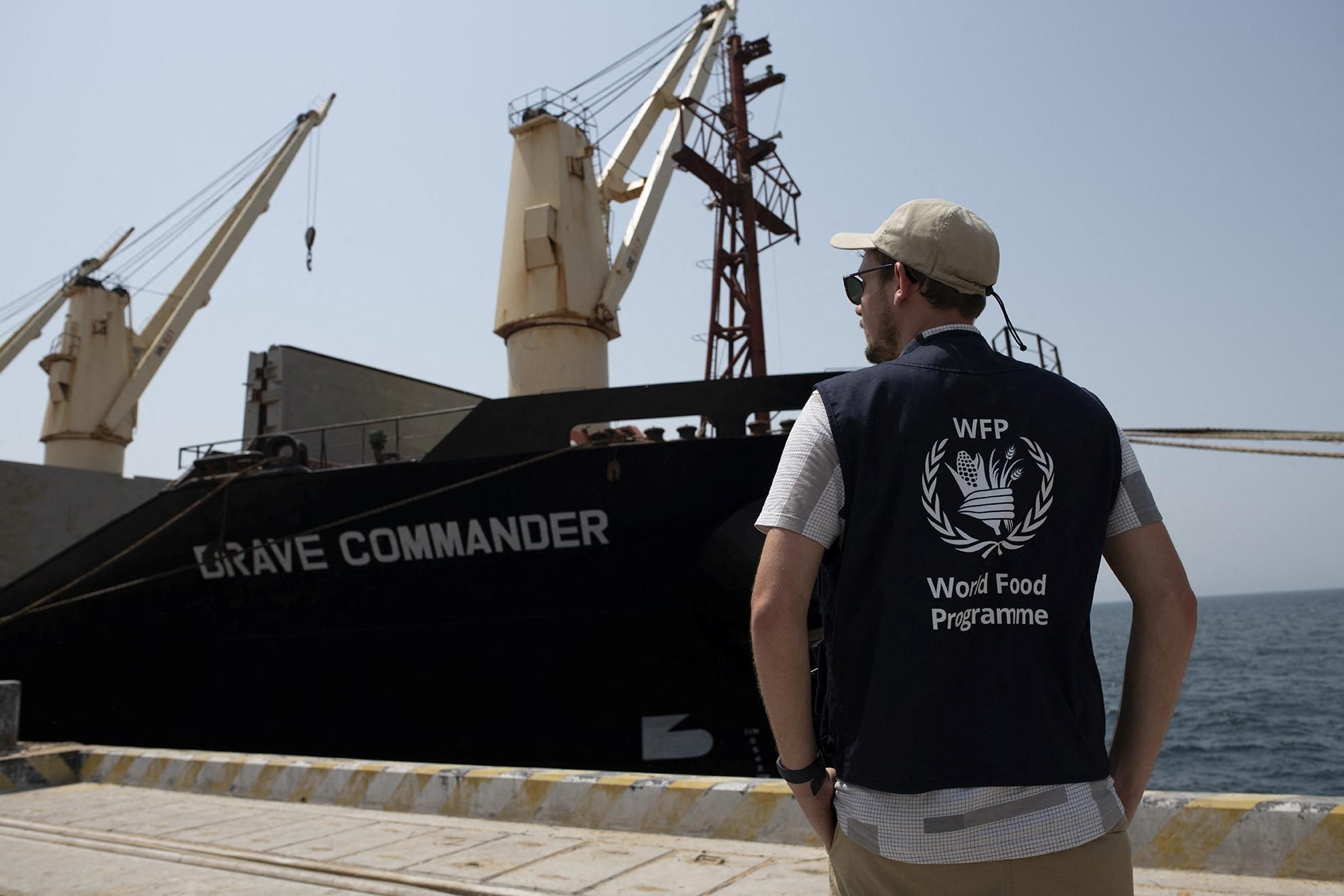What We're Watching: Africa got grain, Ukraine counteroffensive, CCP save the date
Ukrainian grain arrives in Africa
Finally, some more good food news. The first cargo of Ukrainian grain to Africa since the Russian invasion docked Tuesday in Djibouti en route to famished Ethiopia. The UN-chartered ship carries 23,000 metric tons of wheat, enough to feed some 1.5 million Ethiopians for a month. But the drought-stricken country needs a lot more, particularly amid an ongoing civil war in the northern Tigray region that’s caused a humanitarian crisis. What's more, neighboring Somalia and Kenya are also at risk of famine due to the Horn of Africa’s worst drought in 40 years. Before Russia invaded Ukraine, UN food agencies got three-quarters of their grain from Ukraine, so they've had to scale down their operations in the region right when food aid is most needed. The UN-brokered deal for Russia to resume grain shipments from Ukraine's Black Sea ports is slowly bringing down global food prices, which were soaring in part because until recently 20 million metric tons of grain meant for export were stuck in Ukraine. It also offers relief to African nations, many of which have been hit hard by rising food prices stemming from the war between the Sunflower Superpowers. Food shipments are coming, but they are slow — especially for the 22 million people across the Horn of Africa who are at risk of starvation.
Will Ukraine's counteroffensive succeed?
Ukrainian forces continued Tuesday their counteroffensive against the Russian military in the southern Kherson region, launching attacks inside Russian-held territory that Kyiv hopes will disrupt the enemy's supply lines and pin down its troops. The long-awaited assault aims to take back territory that Moscow captured at the start of the invasion, when Russian soldiers moved into southern Ukraine from Crimea. If the counteroffensive is successful, recapturing Kherson would serve the twin goals of boosting Ukrainian morale and severing Russia's land bridge to the Crimean Peninsula — right when the Kremlin is reportedly getting ready to hold a sham referendum to formally incorporate Kherson (with a population of 290,000 before the war) into Russia. Still, the campaign has only just begun, and hitting Russian targets with Western-supplied long-range weapons is only the prelude to what’ll be a tougher fight to retake urban centers. Meanwhile, an international team of inspectors from the International Atomic Energy Agency is on its way to check out the Russian-occupied Zaporizhzhia nuclear power plant, Europe's largest. Heavy shelling there has raised fears of an accident in a nation still traumatized by the 1986 Chernobyl disaster.
Date set for China's 20th Party Congress
China's ruling Communist Party announced Tuesday that it'll hold its much-anticipated 20th Party Congress starting Oct. 16. At the event, which takes place every five years, the CCP will lay out its plans until 2027, with President Xi Jinping widely expected to secure a norm-defying third term as CCP secretary-general. But the gathering comes at a particularly bad time for Xi: China's economy is sputtering and will surely miss its 5.5% annual growth target due to the combined effects of an energy crunch, a property market slump, piling debt, and importantly, zero-COVID. (Indeed, millions of people were placed under lockdown Tuesday over fresh virus outbreaks in cities in Hebei province, a three-hour drive from Beijing.) Still, despite earlier rumors of him losing a bit of his grip on the party, after a decade in charge Xi has accumulated more CCP power than any Chinese leader since Deng Xiaoping or Mao Zedong. One thing to keep an eye out for is whether the party signals its intention to start relaxing zero-COVID after the meeting.- "Lives at risk" in Sub-Saharan Africa due to rising food and fuel costs - GZERO Media ›
- Focus on Africa: hunger, energy, climate - and the path to growth - GZERO Media ›
- Podcast: Is Ukraine's counteroffensive failing, or is the tide about to turn? - GZERO Media ›
- Ukraine's counteroffensive on the brink - GZERO Media ›
